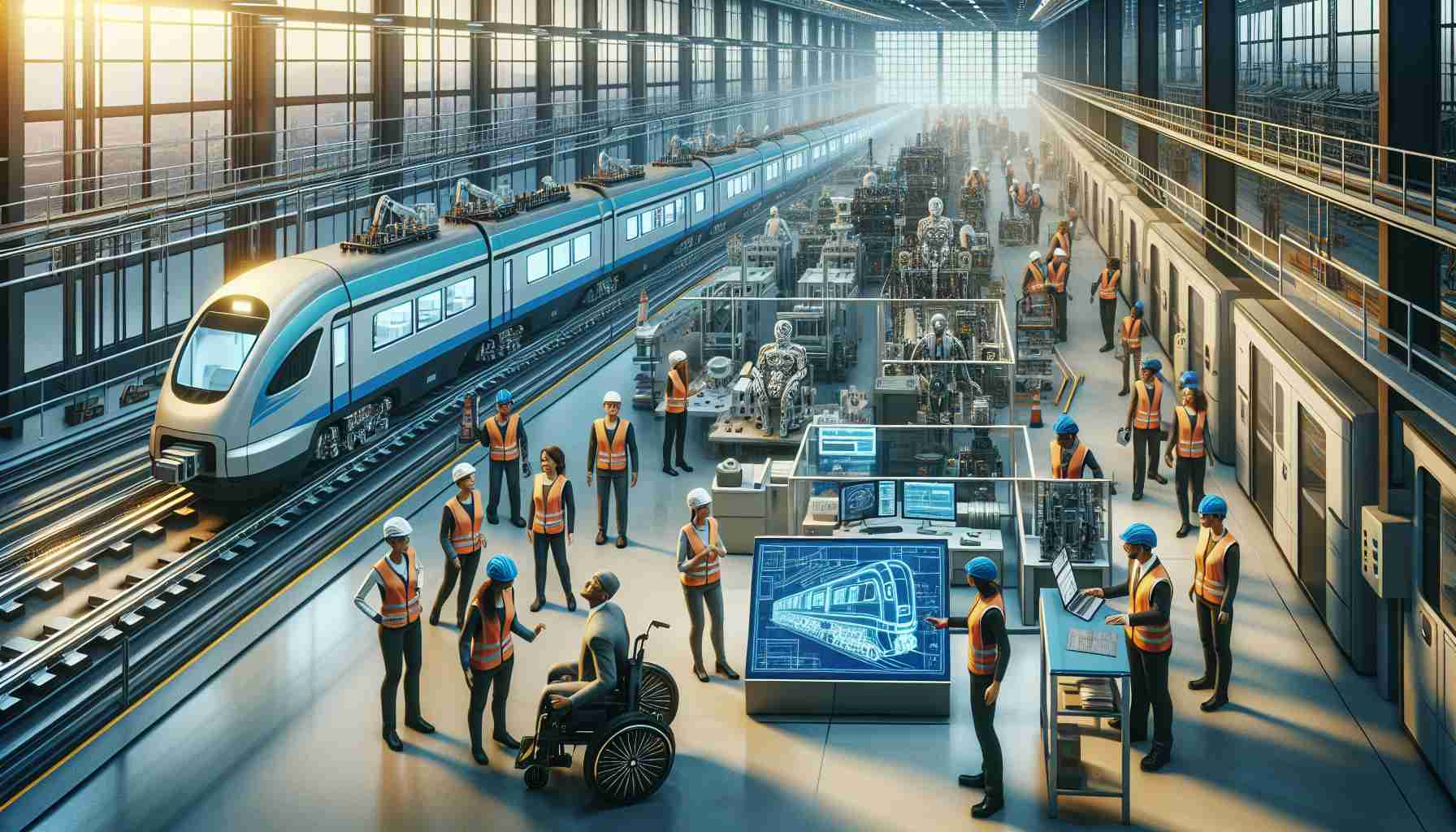A Trailblazing Journey Through Innovation
In a daring move, a visionary entrepreneur is set to revolutionize the railway industry by introducing cutting-edge technologies and methodologies to enhance train manufacturing processes. Breaking away from traditional norms, this innovative approach promises to reshape the landscape of the transportation sector.
Redefining the Future of Rail Travel
Gone are the days of conventional manufacturing practices as the industry embraces a new era of creativity and forward thinking. By leveraging advanced materials and streamlined production techniques, the potential for creating more efficient and sustainable trains is boundless.
Pioneering Collaborations and Strategic Partnerships
Embracing a spirit of collaboration, forward-thinking leaders are joining forces with governmental bodies and private enterprises to drive this transformation forward. Through strategic partnerships and shared visions, the railway industry is poised to reach new heights of success.
Innovative Solutions for Tomorrow’s Challenges
With a focus on addressing capacity constraints and optimizing operational efficiencies, these visionary leaders are spearheading initiatives that seek to overcome obstacles and propel the industry towards a brighter future. By investing in research and development, they are paving the way for innovations that will shape the future of rail travel.
A New Dawn for the Railway Sector
As the industry embarks on this transformative journey, the possibilities are endless. With a commitment to excellence and a drive to push boundaries, the future of train manufacturing holds immense promise for progress and prosperity. Together, these pioneers are igniting a new chapter in the rich history of rail transport.
Shaping Tomorrow’s Railways: Envisioning a New Era of Train Manufacturing
In the quest to revolutionize the railway industry, there are key questions that arise regarding the advancements in train manufacturing processes. How do these cutting-edge technologies impact the overall efficiency and sustainability of trains? What are the main challenges and controversies associated with implementing these innovations? Let’s delve deeper into the dynamics of this transformative journey.
One of the most crucial aspects to consider is the adoption of advanced materials and streamlined production techniques in train manufacturing. These innovations not only have the potential to enhance the performance and durability of trains but also contribute to reducing environmental impact through increased sustainability measures. By incorporating these progressive methodologies, the industry can pave the way for a more efficient and eco-friendly future of rail travel.
Amidst the wave of innovation, there are challenges that cannot be overlooked. One such challenge revolves around the initial investment required to implement these state-of-the-art technologies in train manufacturing facilities. While the long-term benefits may outweigh the costs, there is a pressing need to address the financial implications and feasibility of such large-scale transformations within the industry.
Another point of contention lies in ensuring that these innovations do not compromise safety standards or operational reliability. As new technologies are integrated into the manufacturing process, stringent quality control measures and thorough testing procedures become paramount to guaranteeing the safety of passengers and the efficiency of railway operations.
Advantages of these innovations are undeniable, ranging from increased energy efficiency and reduced maintenance costs to enhanced passenger comfort and improved connectivity. By embracing a forward-thinking approach to train manufacturing, industry leaders can unlock a myriad of benefits that promise to reshape the future of rail travel.
However, alongside these advantages come certain disadvantages that must be addressed. Potential downsides could include technological complexity leading to maintenance challenges, as well as the need for specialized training for personnel to operate and maintain these advanced systems effectively.
As the railway sector embarks on this transformative journey, it is essential to navigate through these challenges and controversies with a strategic and collaborative mindset. By fostering innovative solutions, addressing key concerns, and embracing a sustainable approach to train manufacturing, the industry can forge a new path towards unprecedented progress and success.
For more insights on the latest developments in the railway industry, visit Railway Industry for a comprehensive overview of cutting-edge innovations and transformative trends shaping the future of rail transport.
